public health
March 1, 2009

Missing shots
Childhood vaccination rates are increasing, but not as quickly as many governments around the world have claimed. That's the conclusion of a new study by researchers at the UW Institute for Health Metrics and Evaluation (IHME).
September 1, 2008

Sick from cleaning
According to a study by Anne Steinemann, a UW professor of civil and environmental engineering and public affairs, many of today’s top-selling dryer sheets, detergents and plug-in deodorizers contain toxic chemicals.
March 1, 2008

Trouble in mind
UW researchers are trying to untangle the mysteries of Alzheimer’s disease before it reaches epidemic proportions.
December 1, 2007

Joseph Eschbach, 1933-2007
Joseph Eschbach made a medical breakthrough that would improve the lives of more than a million people suffering from kidney disease.

Strong medicine
Some governments may shun his straight talk, but Chris Murray's prescriptions for global health could ultimately help all of us live better and longer.
$62M health grant
A new national consortium will enable researchers to provide new treatments more efficiently and quickly to patients.
September 1, 2007
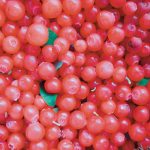
Dining on tradition
UW archaeologists are digging up information about the traditional diets of Native Americans, in the hopes of helping their descendants eat better and beat diabetes.
June 1, 2007

Bad blood
As many as 3 million Americans are carrying the hepatitis C virus — but most don’t even know it. The UW is trying to crack its code before more potential carriers get the bad news.
March 1, 2007

Immigrant mental health
Immigrants from Asia have lower rates of psychiatric disorders than American-born Asians and other native-born Americans, according to the first national epidemiological survey of Asian Americans in the United States.
December 1, 2006

New generation
UW scientists have made important first steps toward the day when they will be able to grow livers, hearts and other replacement tissue from stem cells.
September 1, 2006
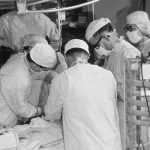
50 years for the heart
Fifty years ago, the UW perfected its own heart-lung machine and did the first open-heart bypass surgery in the West. Now advances are coming so quickly that they could put future cardiac surgeons out of business.
June 1, 2006
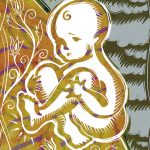
Infant screening
A relatively simple screening process detects enzyme deficiencies in newborns, allowing treatment to begin before too much damage has been done.
June 1, 2005
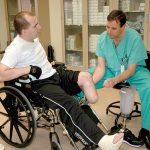
Loss and recovery
Harborview Medical Center sees approximately 150 amputation cases a year. More than half of these surgeries come from traumatic injuries, as opposed to the disease- and age-related amputations done at most hospitals. As a result, Harborview is nationally recognized as a leader in amputation technology and techniques.
March 1, 2005
Lab debated
The University of Washington is holding community forums to discuss a possible Regional Biocontainment Laboratory that might be built near the Health Sciences Center on Seattle’s south campus.
Making waves
On Dec. 21, UW Bioengineering Professor Henry Lai could be found with a big smile across his face. Research into cell phone radiation that he and N.P. Singh had pioneered 10 years ago at the UW was finally being corroborated.
March 1, 2004

Nursing pioneer
Kathryn Barnard, the Spence Endowed Professor in the UW School of Nursing, was recognized for her groundbreaking research when she was presented with the 2003 Episteme Award at the Sigma Theta Tau International Convention.

Drastic measures
Stomach bypass surgery for the “super obese” Is more than a fad. The UW has a $1.5 million grant to better understand bariatric surgery and spinoffs that might lead to the ultimate diet pill.
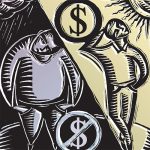
Income-weight link
Healthy foods that aid in weight loss and provide a feeling of fullness cost more than energy-dense foods such as French fries, soft drinks, candy and cookies. The result: poor people are more likely to be overweight.
September 1, 2002
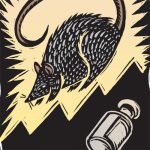
Diabetes discovery
Discovery of a gene that plays a major role in type 1 diabetes in rats and is present in nearly identical form in humans might shed light on the little understood processes of the thymus, a research team including University of Washington scientists announced.
March 1, 2001

Bitter by nature
When it comes to phytonutrients in vegetables, the demands of good taste and good health may be wholly incompatible.